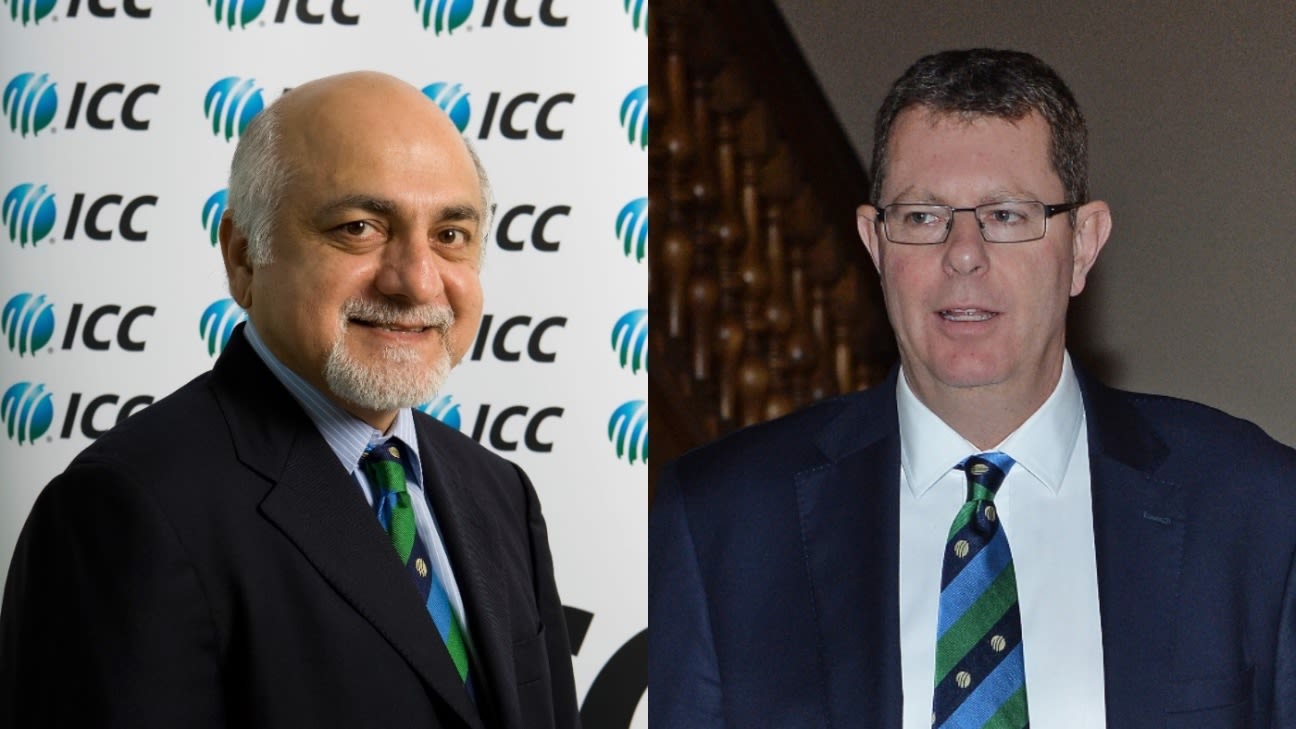
It could take three rounds of voting to elect the next ICC chairman, if neither of the candidates in the running win the requisite number of votes. The ICC's annual quarterly meetings begin today, soon after secret ballot voting to pick one of New Zealand Cricket (NZC) head Greg Barclay or the ICC's current interim chairman Imran Khwaja as the next full-time chairman opened.
In all, 16 votes will be cast by directors sitting on the ICC Board: the heads of the 12 Full Members, three directors representing the Associates and the independent woman director Indra Nooyi. Since Khwaja is the current chairman, he cannot cast a vote in that position - but can as acting chair of the Associate members. CEO Manu Sawhney does not have a vote. Barclay can cast a vote though. The winner will need not just a simple majority but two-thirds of the votes cast, or 11 votes.
If neither candidate gets that number of votes, another round of voting will take place - most likely later this week. Should that also not throw up a winner, a final round of voting will take place. If there is no two-thirds majority after that, then it is believed that Khwaja will be appointed the new chairman for a stipulated period. Votes are being cast electronically.
The multiple rounds stipulation - if needed - could be pertinent because of the divisive and secretive nature of proceedings so far. It's been nearly six months since Shashank Manohar stepped down as chairman and since then there has mostly been jostling for the spot, or to have the right man put in the spot. At one point, most heads of Full Member board had emerged as candidates and until very recently the Board could not even finalise the process by which a chairman is to be elected.
Much of that is down to what each of Khwaja and Barclay represent, in terms of the future direction of international cricket. Khwaja and Sawhney, as well as other board heads like Ehsan Mani, are pushing for an extra ICC event in the next calendar as a number of Full Members still rely heavily on revenues generated from those events. Barclay believes - and is backed by boards from India, Australia and England - that bilateral cricket should take precedence, a form of cricket from which these three boards make more money.
That debate, reminiscent of the conditions that led to the Big Three restructure in 2014, has been bubbling away in the backdrop for much of this year as the game's administrators start drawing up a schedule for the next cycle, post 2023.
One way or another, a new chairman will finally be announced soon - a deadline has been set for no later than December 2 to appoint one, though, depending on how voting has gone, it could be sooner.















 Phone: (800) 737. 6040
Phone: (800) 737. 6040 Fax: (800) 825 5558
Fax: (800) 825 5558 Website:
Website:  Email:
Email: 






